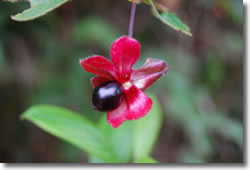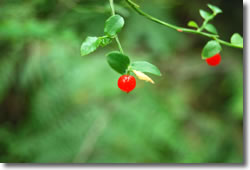Get to know the world around you!
Biology 14: Natural History, Ecology and Conservation
Keely Carroll
Assistant Professor, Biology Dept, Sierra College
At the risk of alienating some readers, I have to say that I don’t like basketball. I just don’t see the excitement of watching a bunch of people run up and down a court over and over again for an hour. Yet, basketball is a multi-million dollar industry, so somebody must find it interesting. On the other hand, I enjoy watching baseball. Does this mean that I only like sports where games can take up to 3 or more hours to complete? No. I like watching skiing too and a single skiing run can take just a few minutes to complete. So what is the difference?
The difference is that I know baseball and skiing, I understand them. I grew up with a high school baseball coach in the house and I skied from the time I was very young (heck, I am even named after Jean-Claude Killy). I understand the nuances involved in making a turn on a giant slalom course, not that I can do them, but I understand them. I understand the thought process that a pitcher goes through when they have runners at first and third, two outs and are facing the best hitter from the opposing team. That is what makes watching those sports enjoyable: knowing all of the little details of the game. I don’t understand basketball. I never played it and never was around any person with any true fervor for the sport who could have taught me about it so I have no understanding of what it means to play that sport.
Love of Nature

So, why did I take the risk of alienating all of you basketball fans? Well, because I think that the same argument applies to a love of nature. I think that there are many of us who love being outside. We love hiking, camping, visiting wild places, river rafting, rock climbing. I also know that there are many out there who can’t stand it: the mosquitoes, the dirt, the wildlife that might eat you, the lack of flushing toilets. Why is there a difference?
I would argue that a great deal of that difference comes from what we were exposed to at a young age: whether or not our parents took us camping; whether or not we lived somewhere we could play outside. If you grow up in nature, I think you grow up understanding it and appreciating it much more. Does that mean that if you didn’t grow up with that sort of situation that you can’t love the outdoors? Of course not! We can develop that appreciation as adults as well. One of the ways in which we can develop that love of nature is by seeing nature through the eyes of a guide, someone who can lead us on our journey and point out things along the way. Yet, not all of us know someone who is like that, so another option to help to grow and develop that understanding is to take a class. At Sierra College we have a class that is designed to help people to develop a better understanding of the natural environments of our state entitled Biology 14: Natural History, Ecology and Conservation.
Nature in California
 The Natural History class is designed to take students on a tour of the natural environments of California. We discuss the coasts, coastal forests, the environments of the Central Valley, the Sierra Nevada and deserts. We take field trips to some of those environments. I have taken many a student to their first trip to the ocean in that class and they always end the experience feeling inspired. Even those students who have visited some of those regions before start to see these areas in a new light, with a new understanding of why that environment is there and how if works. Students in this class learn how to identify plants and animals they see in the wild. They learn what species they might expect to see in these environments.
The Natural History class is designed to take students on a tour of the natural environments of California. We discuss the coasts, coastal forests, the environments of the Central Valley, the Sierra Nevada and deserts. We take field trips to some of those environments. I have taken many a student to their first trip to the ocean in that class and they always end the experience feeling inspired. Even those students who have visited some of those regions before start to see these areas in a new light, with a new understanding of why that environment is there and how if works. Students in this class learn how to identify plants and animals they see in the wild. They learn what species they might expect to see in these environments.
The students in the class also develop an understanding of ecology and how natural environments and their inhabitants interact with one another. Many students finish the class with a new understanding of the world around them and with that new understanding comes a new appreciation for nature. Those students can’t wait to go back out into nature. Many of the Natural History students I have had have enrolled in one of our many field courses afterwards and gone on their first camping trip as a result. When they understand nature, it becomes a more enjoyable place to be.
Nature is Free

Why would you want to develop a greater understanding of nature? Well, first of all it is everywhere! Its free to visit! It makes a sunny day all that much more nicer! It also makes things that can be tough much more enjoyable. I recently ran a marathon and one of the things that got me through those last tough miles was the wildlife and wildflowers that I saw along the way. I knew their names, why there were there and how they interacted with each other which helped me finish much more than listening to an iPod.
Finally, I think that the most important reason to develop an understanding of nature is that when you understand something you see the point in protecting it. We live in an age where nature is becoming scarce and threatened. The more people that there are who develop a love of nature, the more people who will be willing to try to protect it and that would be a great thing!
